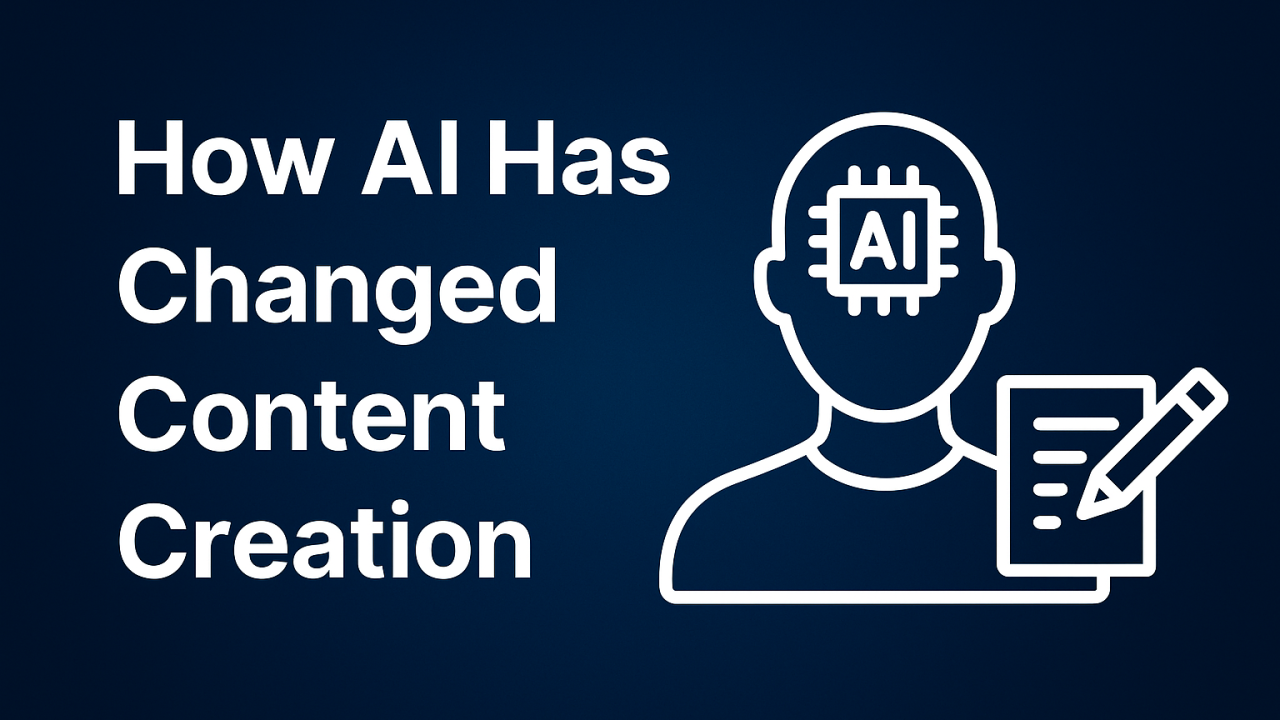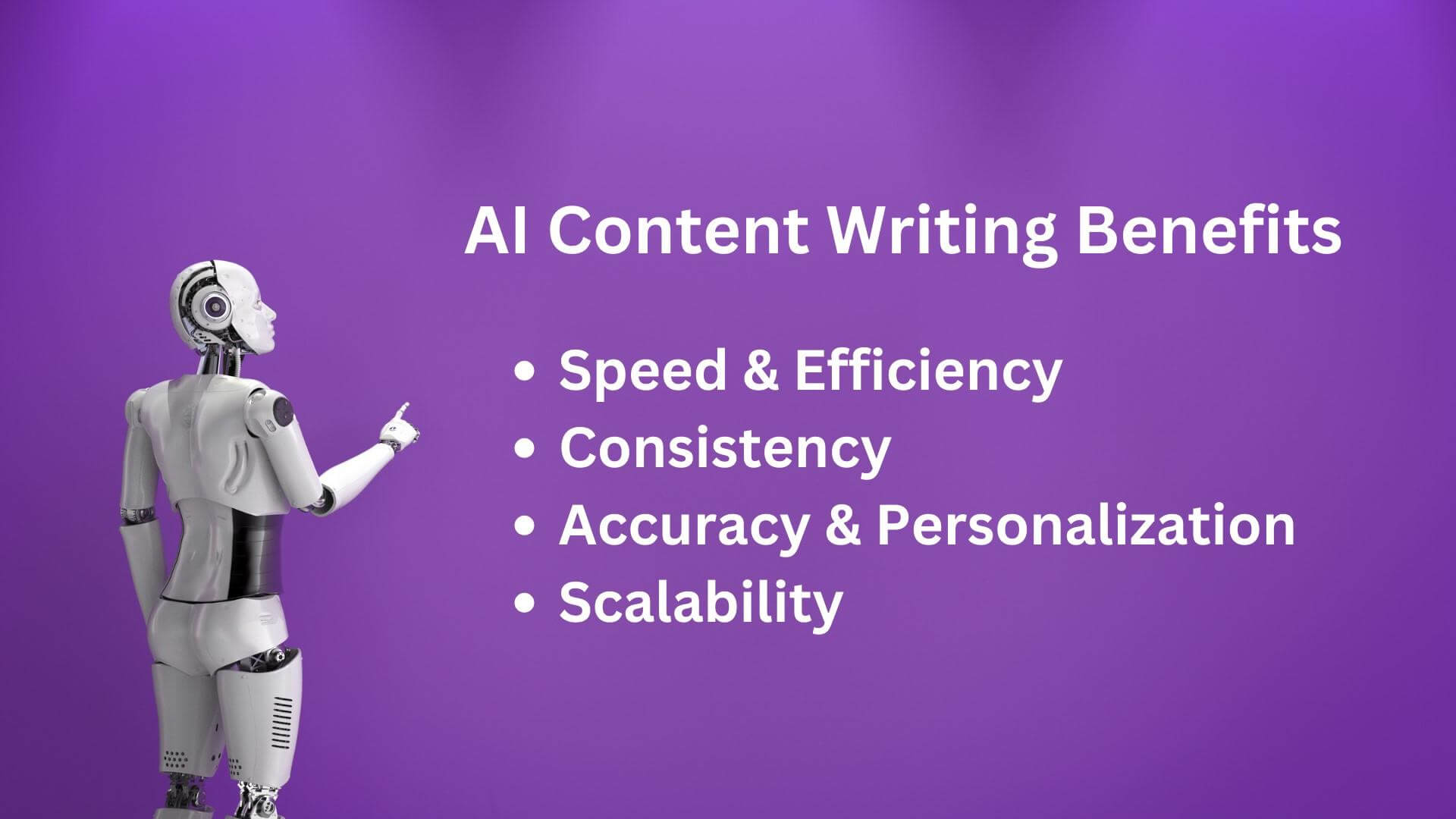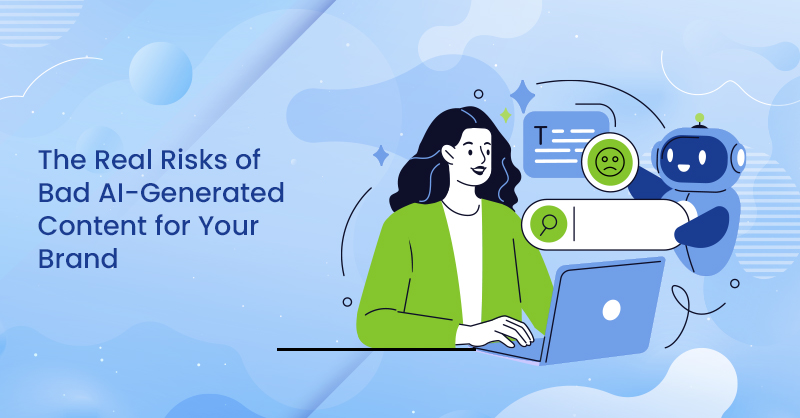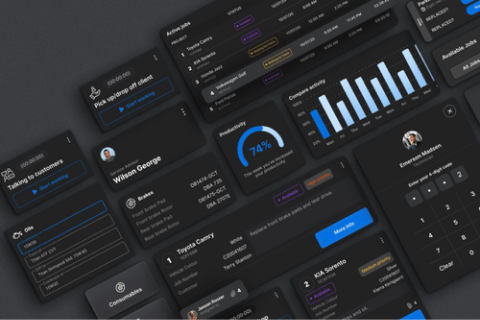The rise of AI-generated content is reshaping how businesses create content and manage the entire content creation process.
With the growing use of AI tools, marketers can publish faster, scale production, and target more keywords than ever before. But the big question remains: is AI content actually good for SEO?
On one hand, AI content can help improve search rankings by producing optimized articles that align with search engines and user intent. It can fill gaps, streamline workflows, and make it easier to appear in search results.
On the other hand, not all generated content meets Google’s standards — some may lack originality or fail to provide the high quality content that today’s algorithms reward.
For SEO success, it’s not just about using AI to create words on a page. It’s about knowing how to use AI wisely, when to add human oversight, and how to ensure every page you publish is helpful, original, and authoritative.
In this guide, we’ll explore the pros, cons, and strategies of AI in SEO so you can harness automation without compromising quality.
What Does “AI-Generated Content” Mean and Is It Good for SEO?

AI-generated content refers to text, images, videos, or media created with generative AI tools, rather than being fully human generated content. In digital marketing and SEO, AI content is common because it allows businesses to create blogs, articles, product descriptions, and social posts faster and at scale.
When it comes to search rankings, Google and other search engines don’t judge who wrote the content, but whether it delivers quality, relevance, and helpfulness.
If you generate helpful content that answers questions and serves your target audience, it can perform well in search results.
However, relying only on AI can lead to generic text, inaccurate facts, or keyword-stuffed writing. That’s why the appropriate use of AI is critical. The best practice is to let AI assist with research, drafting, and optimization, while humans review, edit, and enrich for originality and trust.
Since Google’s search rankings prioritize expertise, accuracy, and helpfulness, both AI-generated content and human generated content should focus on creating real value.
By blending the speed of AI with human creativity, businesses can scale content efforts, improve efficiency, and support strong SEO performance.
AI content is good for SEO when used wisely—helping to generate helpful content and rank in search results, but only with human oversight and a clear focus on audience needs.
How Has AI Content Changed the Content Creation Process in Digital Marketing?

The way businesses create content has changed dramatically with the rise of AI-generated content. From blog posts to product descriptions, companies now rely on AI content tools to produce material at scale.
This shift has not only sped up the writing process but has also transformed how marketers approach keyword research, optimization, and overall strategy.
1. How AI-Generated Content Works
To understand how AI-generated content impacts marketing, it’s important to know what it is. Automatically generated content uses advanced algorithms and natural language models to write text that feels human-like.
With these tools, marketers can quickly create content that targets specific keywords, answers customer queries, and improves visibility in Google’s search results.
2. AI Content and Keyword Research
One of the biggest changes is the way marketers perform keyword research. Traditionally, teams would spend hours analyzing trends and competitor data.
Now, AI tools can process large amounts of information in seconds, suggesting keywords that make more sense for a brand’s strategy. This means AI content can be tailored to meet user intent while improving the chances of ranking higher in search results.
3. Google’s Search and Quality Expectations
While AI-generated content has made it easier to publish at scale, Google still emphasizes quality content. Google’s search algorithms prioritize originality, accuracy, and helpfulness.
This means that although automatically generated content can speed up production, it still requires human editing and oversight to ensure it meets the standards of Google’s search for ranking well in search results.
4. Making More Sense of AI Content in Marketing
The key to success lies in balance. Businesses should use AI to quickly draft and create content, but they must also refine it with human expertise to provide depth and credibility.
When done correctly, AI content helps marketers deliver quality content that makes more sense to both search engines and real readers.
5. The Future of AI in Digital Marketing
The introduction of AI-generated content has completely reshaped how brands approach digital marketing. From faster keyword research to better optimization for Google’s search, AI allows marketers to scale while focusing on strategy.
What Are the Pros of Using AI-Generated Content for SEO?

In today’s digital landscape, AI content has become a game-changer for marketers and content writers. Businesses now use AI to produce content faster, optimize it for search intent, and strengthen their overall SEO strategy.
With Google focusing on its Helpful Content System to reward quality content, using AI responsibly can bring several advantages when combined with human creativity.
1. Faster Content Creation
One of the biggest pros of AI content is speed. Marketers and content writers can now produce content in minutes that would otherwise take hours. This helps brands stay consistent with their publishing schedules, a key factor in maintaining authority and visibility in SEO.
2. Data-Driven Insights for SEO Strategy
AI doesn’t just write—it processes large amounts of data analysis to suggest relevant topics, keywords, and structures.
By aligning with search intent, businesses can leverage AI to ensure every piece of SEO content speaks directly to what users are searching for. This means smarter keyword targeting and better chances of ranking higher.
3. Improved Relevance to Search Intent
Success in SEO comes down to understanding search intent. AI content tools can analyze patterns in queries and identify what users want to know. This ensures that the content created is not just keyword-rich but also meets real user needs, making it more likely to rank in Google results.
4. Supporting Content Writers
Instead of replacing human creativity, AI can support content writers by generating drafts, outlines, and topic ideas.
Writers can then refine the AI’s work into high quality content, adding depth, originality, and expertise. This collaboration allows businesses to scale while still delivering quality content that connects with readers.
5. Alignment with Google’s Helpful Content System
Google’s Helpful Content System is designed to reward quality content that is useful, reliable, and relevant. When businesses leverage AI properly, they can produce content that meets these expectations.
What Are the Cons and Risks of Relying on AI Written Content?

While AI generation and AI writing tools make it easier than ever to create articles, blogs, and product descriptions, relying too heavily on AI written content can pose risks.
For long-term SEO success, Google continues to emphasize high quality content that adds value to users. If marketers depend only on generative AI without oversight, the result can be poor quality content that damages both rankings and credibility.
1. Risk of Producing Poor Quality or Thin Content
One of the biggest risks of AI written content is thin content. AI may produce large volumes of text quickly, but without proper editing, the material may lack depth, insight, or originality. This kind of poor quality content fails to engage users, leading to reduced time on site and weaker SEO signals.
2. Duplicate and Unoriginal Content Issues
AI writing tools often pull patterns from existing data, which can result in duplicate content or unoriginal content. Search engines expect websites to produce original and valuable material. Over time, sites filled with repeated or generic text risk being ignored by users and search engines alike.
3. Risk of Google Penalties
Google does not see AI written content as inherently bad, but it does penalize poor quality content. If generative AI produces spammy, thin content, or keyword-stuffed articles, Google may penalize AI content, causing websites to lose visibility or see pages completely removed from organic traffic results.
4. Over-Reliance on AI Writing Tools
While AI generation speeds up content creation, it can’t replace human judgment. Over-reliance on AI writing tools may cause businesses to overlook accuracy, tone, or cultural context. This results in AI written content that feels mechanical and disconnected from real user needs.
5. Damage to Organic Traffic and Brand Trust
If a website consistently publishes poor quality content, it risks losing organic traffic. Users expect high quality content that solves problems and offers real value.
If they encounter repetitive, shallow, or misleading information created through generative AI, they are less likely to trust the brand and may stop returning altogether.
How Can Businesses Create Helpful Content with AI Tools?

With the rise of AI in digital marketing, many businesses are turning to AI tools to create blogs, product descriptions, and social media posts.
While the temptation to mass produce articles is high, Google’s stance makes it clear: the goal is not manipulating ranking with low quality content, but delivering real value to users.
When used wisely, AI can help companies build trust, drive website traffic, and achieve increased brand awareness.
1. Focus on Quality, Not Quantity
One of the biggest mistakes businesses make is relying on mass produced text from AI. This often results in low quality content that adds little value.
Instead, brands should use AI to assist with drafting and idea generation, while ensuring that final outputs are fact-checked, well-structured, and aligned with user needs. Helpful content is always better than filler.
2. Understand Google’s Stance on AI Content
Google’s stance is clear: content is not judged by whether it’s written by a human or generated by AI, but by whether it provides real usefulness.
For example, game search results for sports scores or event updates should be timely and accurate. Businesses that publish misleading or spammy content risk penalties, especially if the intent is only manipulating ranking.
3. Use AI Tools to Boost Relevance and Accuracy
AI can process large datasets, making it easier to produce articles that answer common questions. When applied correctly, AI-generated text can improve website traffic by meeting real search queries.
However, every piece should be refined by editors to avoid errors, outdated facts, or superficial coverage that could harm credibility.
4. Build Increased Brand Awareness with Helpful Content
When businesses consistently publish useful, trustworthy material, they naturally build increased brand awareness.
AI tools can help brands scale production, but real success comes from pairing automation with human oversight. This combination ensures content is not only optimized for SEO but also meaningful to readers.
5. Seeking Success with a Balanced Approach
Businesses seeking success with AI must balance efficiency with responsibility. Using AI for brainstorming, outlines, and keyword alignment is effective—but human insight should refine the work into something unique and reliable.
That’s the difference between simply mass produced text and helpful content that supports long-term SEO goals.
What Is the Best AI + Human Hybrid Strategy for Content Marketing?

The rise of large language models has transformed content production, enabling businesses to generate articles, blogs, and even meta descriptions at scale.
However, Google has consistently warned against low quality and low effort content, especially when the primary purpose is simply to manipulate search rankings.
To maximize SEO performance, the most effective strategy is an AI + human hybrid model that balances efficiency with quality.
1. Why a Hybrid Strategy Matters
While AI can accelerate content production, over-reliance creates understandable concerns around accuracy, originality, and depth.
For example, relying only on AI to write about sensitive topics, or automatically generating weather forecasts and news without human oversight, may result in errors or misleading details. A hybrid strategy ensures that content remains both scalable and trustworthy.
2. Google’s Stance on AI Content
Google does not label AI-created material as inherently bad. Instead, it evaluates whether the piece provides genuine value.
If a website publishes low quality or spammy text, uses tactics like expired domain abuse, or produces content with no real primary purpose other than ranking, it risks penalties. This is why low effort content created without human input often struggles to perform well.
3. Role of AI in Content Production
Large language models and AI systems can assist with:
- Drafting blog posts and articles at speed.
- Creating structured outlines for SEO performance.
- Generating short-form content like meta descriptions.
- Analyzing search data to guide keyword placement.
AI’s strength lies in handling repetitive tasks and processing large data sets that would take humans hours to complete.
4. Role of Humans in Refinement
Human editors and strategists bring creativity, context, and originality. Their role in a hybrid strategy includes:
- Refining AI drafts into high-quality content.
- Ensuring material has a clear primary purpose beyond ranking.
- Adding depth, examples, and brand voice.
- Reviewing AI-written pieces to avoid low effort content and factual errors.
This ensures that every piece is aligned with Google’s standards and builds reader trust.
5. The Best AI + Human Workflow for SEO Performance
A practical hybrid strategy may look like this:
- AI draft generation – Use large language models for quick first drafts.
- Human editing – Fact-check, improve clarity, and enrich with insights.
- SEO optimization – Use AI for keyword placement and generating meta descriptions, while humans check readability and flow.
- Compliance review – Ensure no signs of expired domain abuse or other manipulative practices.
- Final review – Confirm the piece serves a genuine primary purpose and avoids low quality signals.
This approach creates content that satisfies both Google’s algorithms and user expectations.
Frequently Asked Questions(FAQs)

1. What Is the Future of AI Content and Content Marketing in Google’s Search Generative Experience (SGE)?
The future of AI content in Google’s SGE emphasizes helpful content, aligning with user intent, reducing low quality outputs, and integrating content marketing strategies that prioritize relevance, authority, and search visibility.
2. How can businesses balance AI generation and human writers?
Businesses balance AI generation and human writers by letting AI handle drafting and content production tasks, while humans refine outputs, add creativity, context, and originality—ensuring authentic, high quality content that meets SEO standards.
3. How do AI content tools support content marketing at scale?
AI content tools support marketing at scale by automating keyword research, generating outlines, drafting blogs, and creating meta descriptions, allowing brands to produce content efficiently while focusing on strategy, personalization, and SEO performance.
Conclusion
AI-generated content is transforming SEO and digital marketing, but not all content created this way delivers value. Success depends on blending automation with human oversight to ensure originality, accuracy, and relevance.
By using AI generated content strategically and enriching drafts with structured data, businesses can improve visibility and trust while avoiding practices that may cause Google to penalize AI content.
Ultimately, the goal is to provide meaningful experiences that attract and retain website visitors, driving long-term authority and growth.

.jpg)
.jpg)
.jpg)
.jpg)
.jpg)
.jpg)
.jpg)
.jpg)
.jpg)
.jpg)
.jpg)
.jpg)
.jpg)
.jpg)
.jpg)
.jpg)
.jpg)
.jpg)
.jpg)
.jpg)
.jpg)
.jpg)
.jpg)
.jpg)
.jpg)

.png)
.png)
.png)
.png)
.png)
.png)
.jpg)
.jpg)
.svg)

